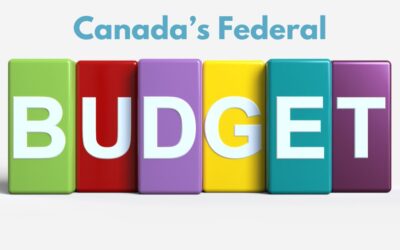No doubt that 2020 was a year for the books, but while so many are affected, not all of the financial events that have occurred in our world have been fatal. Here’s a list of the Top 5 in Canada, in no particular order.
1: Global Pandemic = Record Government Stimulus
The global pandemic of COVID has been good and bad from a financial event standpoint. In Canada, our federal government was quick to approve its first government stimulus packages, getting money into the hands of Canadians who needed it most, as quickly as possible. Being no easy task, we have seen adjustments made to those stimulus packages since April. In fact, because of the government stimulus (CERB) program, we’ve seen a 10% increase in household incomes in 2020. That’s right, an increase, as the flat-rate income supplement was, for many, higher than what the individual earned pre-COVID.
Businesses were also offered financial assistance in various ways through wage subsidies and partially forgivable loans, to help keep their staff on the payroll and aid in regular expenses. These of course, have been added to and extended, as the pandemic continues.
These programs aren’t perfect, and as the 2020 tax filings roll in we’ll only see more and more complications arise, but nonetheless, we continue to see record government aid helping people now. The bill will come later – as will another financial event.
2: Dow Jones hits record high
Amid the global pandemic, we’ve seen a turbulent stock market appear as a major financial event for investors, including a 20-30% loss in the early days of the pandemic, and even greater losses in sectors most heavily hit. Once the markets got their bearings and businesses were able to project losses based on stimulus packages and sales projections, the markets recovered. In fact, we even saw another financial event when the Dow Jones Industrial Average (a stock market index that measures the stock performance of 30 large companies listed on stock exchanges in the United States) reached an all-time high of 30,000 points largely fueled by the outlook of a COVID-19 vaccine. While this isn’t widely considered to be an accurate representation of the US economy, it can positively affect investors’ confidence.
3: She-cession
For the first time, the global pandemic brought about a recession affecting women in the workforce more than men. Historically, recessions in North America have affected manufacturing more than anything. This recession is affecting service jobs largely held by women. This, coupled with school closures, has seen more women forced out of the workforce. For more info on this, check out a recent blog post.
4: Lower interest rates
One aspect of government stimulus comes in the form of lower Central Bank interest rates – that is, the rate at which your banking institutions can borrow money from the Bank of Canada for example. Called “quantitative easing“, it’s an easy and often immediate way to stimulate the economy, and a method employed widely since 2008, this almost can be bypassed as a significant financial event. With the lowering of interest rates, borrowing becomes cheaper. Alternatively, existing debt can be repackaged at a lower interest rate to save you money and help to pay it off sooner. With record-high debt levels in Canada, this can help many people, as well as making home or investment property ownership more affordable for many.
5: Industry-related recession
A recession, technically, is a financial event where we see two existing quarters with a decline in domestic Gross Domestic Product (GDP), largely based on a decline in consumer spending. This global pandemic has brought upon an industry-related recession, wherein only certain industries are being negatively affected. There are companies seeing the benefit from the pandemic, including tech companies (i.e. how often did we talk about zoom calls prior to the pandemic?). What’s more worrisome is that there will be differing recoveries for different industries affected. For example, while restaurants will likely recover as soon as there is a widespread vaccine, travel may be slower to rebound as not only have people’s bank accounts been affected but also they may be leery to leave their own country.
Of course, this is not an exhaustive list, but simply a quick list of some of the top financial headlines. Is there something I missed that you’d like added? Or questions about any of the topics mentioned and how it affects you? Drop me a line in the comments, or contact me privately.





0 Comments